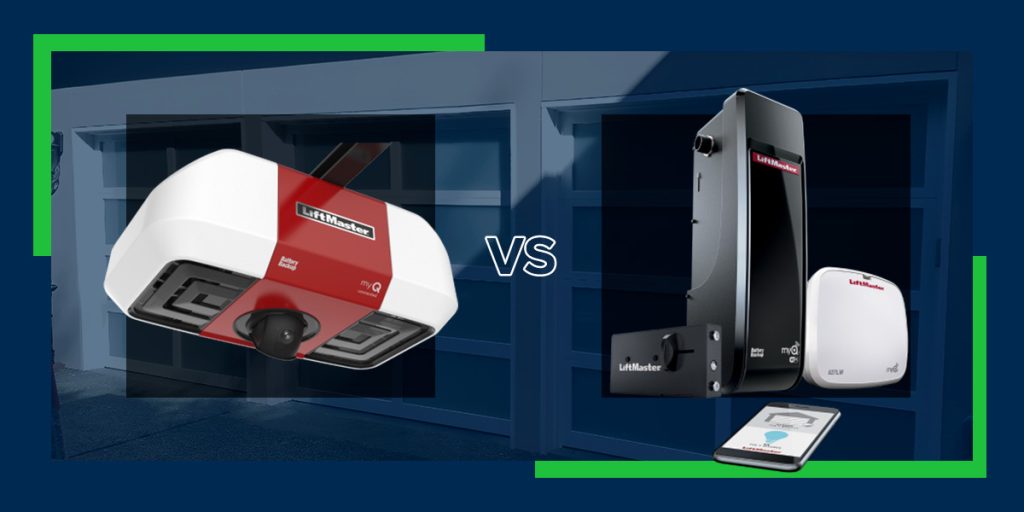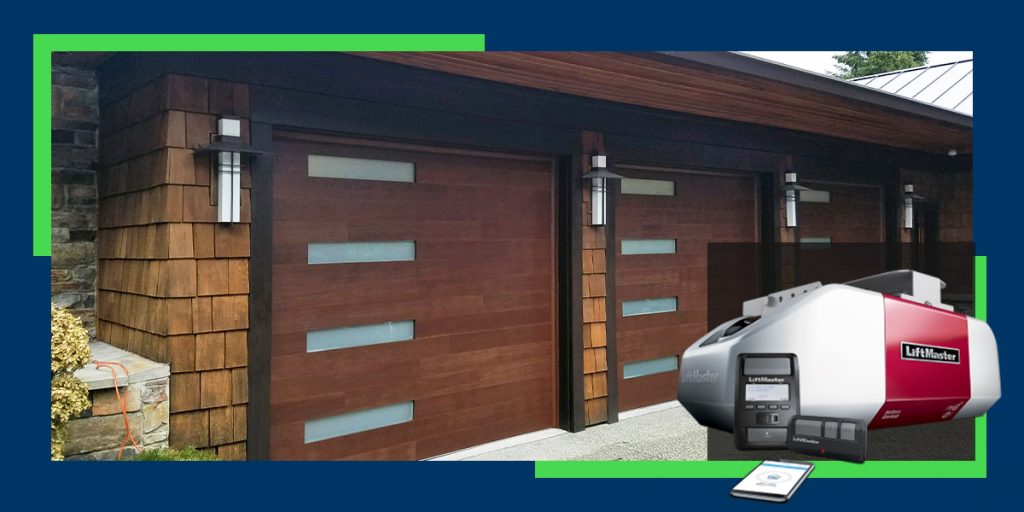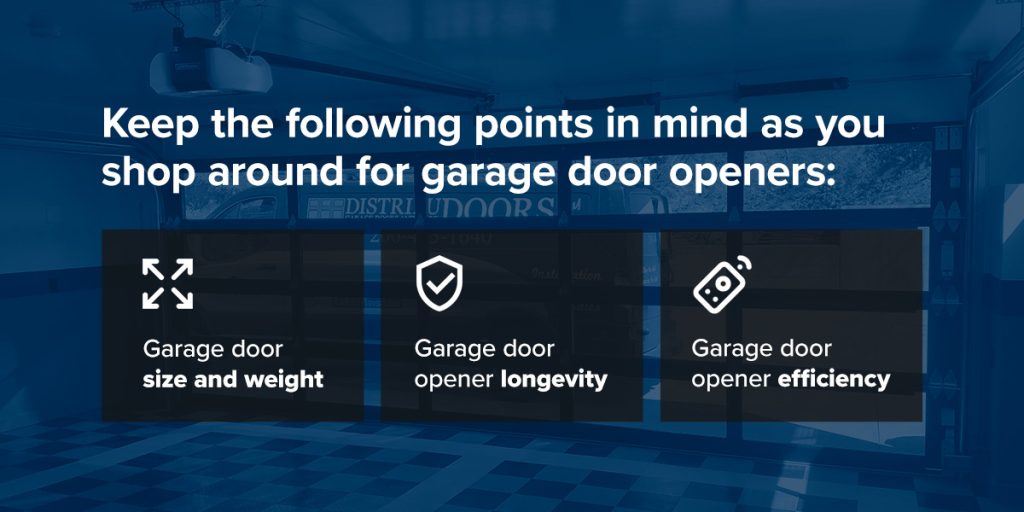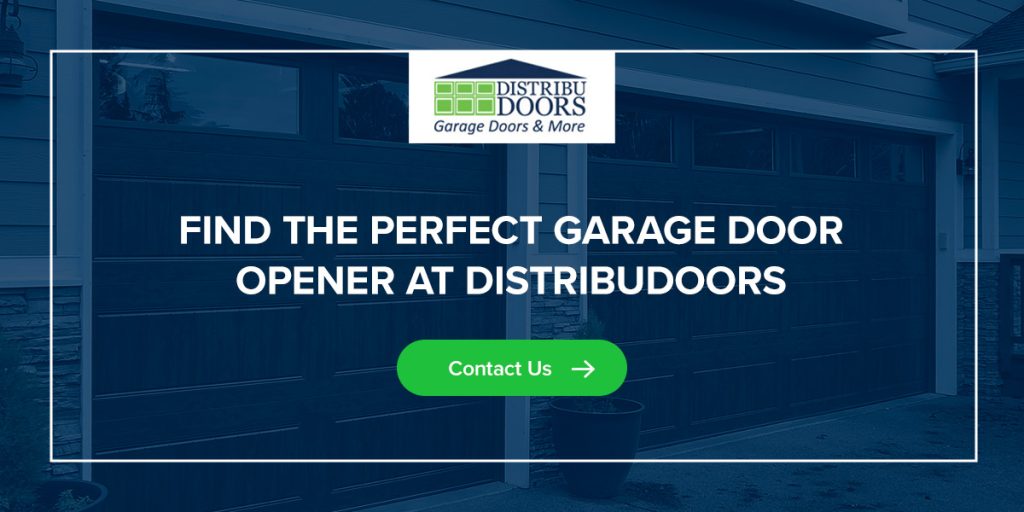Garage Door Maintenance Guide
Updated: April 21, 2022
Regular garage door maintenance is incredibly important for maximizing the lifespan of your door. The following guide takes a look at some of the most common garage door maintenance and repair tasks, with expert advice on industry best practices.
Overhead vs. Wall Mounted Garage Door Openers
Updated: December 06, 2024

If you need a garage door opener, there are plenty of models on the market today. The most common options are overhead openers or a garage door opener mounted on your wall.
(more…)A Guide to Smart Garage Tech
You’re at the airport and just about to take off when you realize you forgot to close your garage door. All the security cameras, automated front door locks and interior light timers in the world won’t protect your home if your garage door is open — but what can you do? The good news is that smart garage tech will ride to your rescue, giving you more control over your home’s security than ever before.
Does My Opener Need Maintenance?
Many homeowners use their garage doors as front doors, which means their garage door openers are doing a lot of heavy lifting on a daily basis. That heavy lifting, in turn, means that the openers will require proactive maintenance to continue operating as desired.
Choosing the Right Horsepower for Your Garage Door Opener
Updated: December 06, 2024

If you’re considering a new garage door opener for your home, congratulations! Today’s top-of-the-line garage door openers truly are miracles of modern technology, offering quiet operation, reliable service and previously unheard-of levels of convenience. However, knowing which model to choose can be a bit complex. Dozens of brands exist, and you want to pick an opener that can operate your garage door with ease.
One of the most important specifications to note is the opener’s horsepower. The higher the horsepower, the more capable the opener is of lifting a heavy door. A garage door opener for an oversized or heavier garage door will need a higher horsepower. You may be able to use an opener with a lower horsepower for these kinds of doors, but it will put a greater strain on the system, and your opener will not last as long.
What size garage door opener do you need? Check out our quick guide on garage door opener horsepower to point you in the right direction.
Comparing Different Sizes of Garage Door Openers
Choosing the best horsepower class for your garage door system will come down to the weight and balance of your garage door. But first, you should understand the power capabilities of different garage door openers so you know what you’re dealing with. There are three horsepower categories worth exploring:
- 1/3 horsepower: This is the lowest horsepower garage door opener and the most affordable. While this garage door opener should be able to open any properly balanced garage door, it is not recommended as a heavy garage door opener. Heavier doors will create extra stress on the opener, and you will have to replace it sooner. This size of garage door opener is best for single-car steel or aluminum doors that are relatively light.
- 1/2 horsepower: The 1/2-horsepower garage door opener is by far the most common option and is best for standard doors that are 8-12 feet wide. Heavier-than-standard doors or improperly balanced doors will put a strain on the system. While they will do the job effectively and are quite affordable, a higher-horsepower garage door opener will still last longer in most cases.
- 3/4 horsepower: This is the most powerful garage door opener. These openers are suitable for wood doors, insulated doors — especially three- or four-layer insulated doors — and oversized doors. They will also work on lighter doors of standard size. While they are more expensive than the less-powerful garage door openers, you may still want to consider this opener even if you do not have an extra-heavy or oversized garage door, as its longer life may be worth the extra cost.
How to Determine What Garage Door Opener Horsepower You Need

Since horsepower makes a big difference in how garage door openers operate, you want to select the appropriate option for your specific garage door. At the same time, you’ll need to consider your budget and how long the opener will last. Keep the following points in mind as you shop around for garage door openers:
- Garage door size and weight: Assess your garage door’s size and materials. If it’s a single garage door made of a lighter material such as aluminum, you may be able to choose a lower-horsepower opener. Otherwise, larger, heavier garage doors require more power to lift and close, so selecting a greater horsepower will likely be necessary. If you’re unsure about your garage door’s specifications, refer to your owner’s manual or contact a trusted garage door expert.
- Garage door opener longevity: Depending on your budget, you may be more interested in buying an opener with a lower horsepower and replacing it after it eventually wears down. This approach can save you money initially, as lower-horsepower openers tend to cost less. Otherwise, you might prefer to invest in a more durable, higher-power opener that can support your garage door, even if the upfront cost is more.
- Garage door opener efficiency: Remember that lower-power openers are generally only suitable for lightweight single-car garage doors. If you select an opener with a lower horsepower than you need, your system will be inefficient, taking more time and using more energy. Make sure your chosen opener can operate your garage door with enough power so you can access your garage quickly and efficiently. This aspect can also impact your energy bill — the less effort it takes for the opener to move the garage door, the less energy it uses.
Is a Higher Horsepower Garage Door Opener Better?
Since high-power openers can move garage doors easily, you may be inclined to choose the most powerful option despite your garage door’s weight and size. While it may make sense to choose a high-horsepower garage door opener in most cases, doing so can have downsides for some homeowners.
Specifically, you don’t want to spend more than necessary on a garage door opener — and going big in terms of power can lead to unnecessary spending. If you’re dealing with a simple single door, you likely don’t need all the power that comes with a 3/4 horsepower opener. That level of horsepower would have no problems moving the door, but you could get the same operation from a 1/2 horsepower opener for less money.
Overall, a higher horsepower garage door opener is generally better for longevity and durability. That said, you may not need to invest in a door opener that’s much more powerful than necessary.
Find the Perfect Garage Door Opener at DistribuDoors
Choosing the right garage opener horsepower comes down to your specific garage door and budget. Partnering with a professional garage door installer can help you find the best option, especially if you aren’t sure what horsepower you need for your garage door opener.
If you are in search of a garage door opener in the Seattle area, DistribuDoors is likely to have exactly what you are looking for. We have a complete line of LiftMaster® garage door openers in 1/3 horsepower, 1/2 horsepower and 3/4 horsepower sizes. We have chain-drive LiftMasters®, whisper-quiet belt-drive operators and even jackshaft openers if you do not have much available overhead space for your opener.
To learn what horsepower you need for your garage door opener and discuss quick and affordable installation, contact DistribuDoors today.
Related Resources
- How Often Should I Replace My Garage Door Opener?
- Home Garage Door Openers
- Benefits of Jackshaft Garage Door Openers
- Benefits of Belt-Drive Garage Door Openers
- Benefits of Chain-Drive Garage Door Openers

